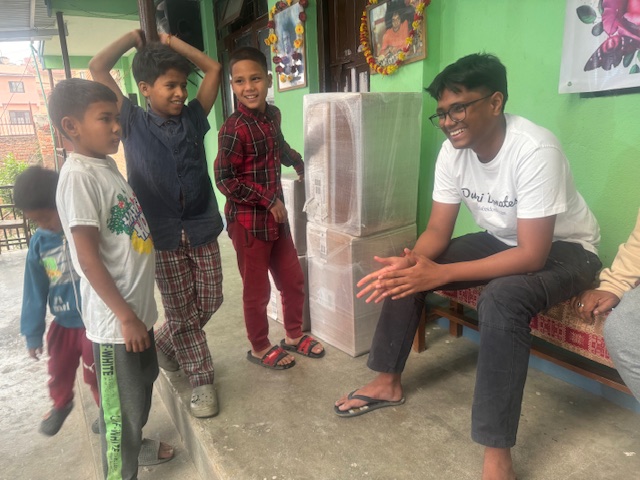Introduction:
“One man’s trash is another man’s treasure.”
The proverb came to life as I handed Tsering the green and blue polo that had been stylish many seasons before his birth. Distributing clothes to an orphanage in Nepal, I was astonished to see that every pair of clothing brought ceaseless smiles to young kids’ faces.
I was initially unsure if the deadstock lying dormant in the warehouse of a retail giant in the UAE would be well-accepted.
Conventionally, the world thinks the clothes from last season are worthless, but here, the kids were thrilled, hugging, kissing my hands, and talking about their dreams. The enthusiasm ran from the 8-year-old who said he wanted to become a big businessman to another who said he was going to become a footballer.
A piece of clothing may not mean much, but the confidence and happiness it gave the children reinforced my belief that trying and finding even small solutions can make a difference.
Despite the nearly festive atmosphere, my heart pounded when I saw a one-year-old in the orphanage. Their life was just about to start. Despite dedicated caregivers, life in an orphanage presents a unique set of challenges. These kids find themselves without the care and support of their biological families. From the absence of parental love to the lack of stability and resources, these challenges profoundly impact a child’s emotional, psychological, and social development.
In this blog, I hope to delve into non-monetary means of contributing to aiding orphanages and organisations that uplift the most vulnerable communities. Here’s how you can help:
- Volunteering: Offer your time and skills to work directly with orphanage residents. Volunteering can include mentoring, creating recreational opportunities, or assisting with administrative tasks.
- Donating Goods: Donate essential items such as clothing, school supplies, toys, books, and hygiene products. These donations can improve the quality of life for orphanage residents and support their well-being.
- Knowledge Sharing: Share expertise and knowledge with kids. This can include organizing one-off workshops on topics like health and education or creating a vocational training module or imparting professional and life skills development coaching.
- Advocacy and Awareness: Advocate for the needs and rights of orphanage residents within your community and beyond. Raise awareness about their challenges and create awareness that can result in their well-being and development.
- Emotional Support: Offer emotional support and companionship to orphanage residents by setting aside regular time—even online. Listening to their stories and providing encouragement can have a profound impact on their well-being and sense of belonging.
By raising awareness, engaging and interacting, we can contribute to uplifting children in orphanages and create a more inclusive and compassionate society where every child has the chance to thrive.


